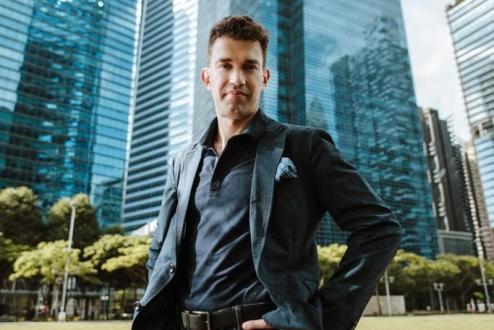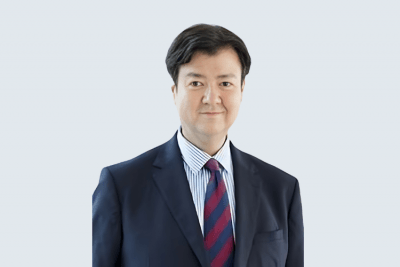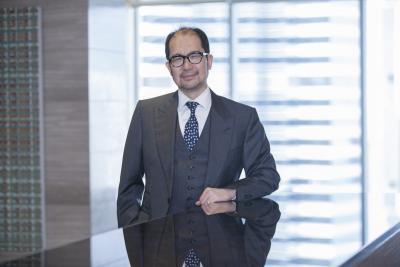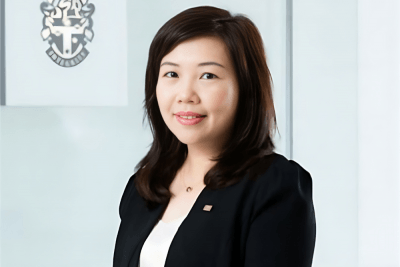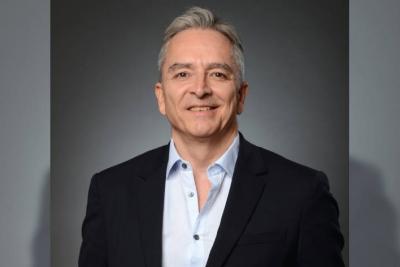Wealth Solutions & Wealth Planning
Asiaciti Trust’s New Singapore MD on Elevating Fiduciary Services for the Technology Era
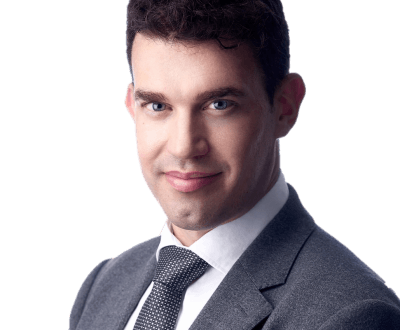
Ross Belhomme of Asiaciti Trust
Jul 15, 2021
In early January Asiaciti Trust announced the arrival of Ross Belhomme as the new Managing Director for its Singapore office. Hubbis ‘met’ with him recently to hear how he was convinced to leave the natural Alpine beauty of Switzerland for the elegancy of Singapore’s CBD skyscraper jungle. Belhomme spoke about why he considers Asiaciti Trust a special business, as one of the few global fiduciary firms truly committed to maintaining its long term stable family ownership and how he intends to help contribute to steering the firm to build on its more than four decades of success.
As well as being technology driven, Belhomme is also unapologetic about being completely client-centric, and has committed himself over the last few years to researching how digital innovation could improve the client experience in the fiduciary industry.
Recently Belhomme was elected Deputy Chairman of the Digital Assets SIG Steering Committee of the Society of Trust and Estate Practitioners (STEP), and therefore is heavily involved in leading the evolution of the fiduciary industry as it enters the digital age.
Asiaciti Trust was first established in Hong Kong in 1978 by Mr Graeme Briggs and developed under his drive and leadership to become a well-respected international trust and corporate services provider. The firm has always maintained an extensive network and close working relationship with fellow financial intermediaries around the globe, including in Europe.
Today the business operates from offices in Singapore, Hong Kong, the Cook Islands, Dubai, Nevis, New Zealand, Panama and Samoa.
Overcoming the challenges of a digital world
Belhomme inevitably dives straight into one of his favourite topics, namely the rise of digital solutions and digitised assets and the challenges facing the fiduciary industry in managing those trends.
STEP, he reports, is taking digital assets rather seriously these days, wanting to boost understanding in an area which is largely at a nascent stage. “STEP is the advisor’s advisor, and there are immense challenges for the fiduciary industry created by not just the rise of cryptocurrencies and digital assets but with operating digitally more generally,” he reports. “People bank online, store documents in an email account and have their passwords in their heads, and it’s a complete nightmare for heirs and the executors of their estates. As the physical world folds into the digital world, this is only going to get worse.”
Needed: a more multi-faceted view of digitisation
He first addresses the last of these, namely the somewhat less esoteric sphere of digitisation of the fiduciary industry, remarking that the firms operating in the industry might not have been up to speed in terms of innovation.
“Our industry has perhaps been too focused on risk management for the providers themselves, rather than centring the drive on improving the service and experience to the client,” he observes. “And in that regard, I do think client service and client experience levels in our industry have room for improvement.”
“Incumbents in our industry have of course, been focused on handling the rising costs driven by the surging volume of regulation but also in many cases, focus has been diverted by the complexities caused by M&A activity in the industry. All in all, there has been insufficient focus on actually improving the experience for the client.”
Delivering a better client experience
Accordingly, Belhomme’s view is that digitisation for the industry at large and for Asiaciti Trust should be honed more towards improved service for the client. “The improvements might, for example, include a user interface that allows clients to interact independently, so they and their advisors can self-help, avoiding the email ping-pong game,” he reports. “With a dedicated interface, clients can then interact with their trustee in their own time, 24/7, they can access the data, once it is held in a structured way, whenever they want, and that approach also has benefits in better data protection and greater transparency.”
In reality – these are early days
But Belhomme acknowledges the industry is in its infancy in terms of embracing technology innovation. He does note that people are waking up more to the negative side of the digital revolution, with the threats increasingly posed in areas like cybersecurity. “It is right that we centre attention on this because that [cybersecurity] is certainly the biggest threat to the industry and its clients. We are aware of this but also have big goals to advance in the field of client experience and user-friendliness.”
“I see us operating in the future like a car company, with a traditional business being the core but with a Formula One team attached to it, really innovating and passing ideas that work back to be integrated into the core business.”
STEP: in line with evolutionary trends
He turns to his involvement with STEP, noting that STEP is becoming more and more involved in contributing to policy formulation and debate.
“We now increasingly engage with governments around the world,” he reports. “For example, the Law Commission in the UK is right now asking the industry for input on how the legal framework around digital assets should be improved, as this is an area where the governments themselves are relying on the industry to help them manage the complexity. For now, the industry just needs to apply best practices and so you need to be aware of what the best practice is by keeping up to date and talking to people. STEP is also getting more involved in producing more content for the public itself to access directly, especially as the younger generations like to find the answers themselves, to conduct their own research on all sorts of matters, such as issues around succession, without immediately going to an expert or professional.”
Another area STEP is focusing on is the terms of services that people click on online, particularly those from Big Techs such as Facebook, Google, Amazon, Netflix (the FANGs) and many others.
He says it is so easy to just click and agree to those terms of service without really thinking through the repercussions, as this could cause all sorts of problems for heirs and family members if passwords or private wallet keys for digital and other assets are tied up in these accounts, and nobody can then access them.
“It really is potentially a huge issue ahead,” he cautions, “especially in relation to wills and accessing passwords and emails to manage people’s estates after someone passes away, particularly in relation to wallets for cryptocurrencies or in relation to the custody of digital assets. It is all highly complex and can be really difficult to sort out.”
“For example in the US the Revised Uniform Fiduciary Access to Digital Assets Act allows the representative of a deceased person to access online accounts but even then, only where the deceased has elected certain options on their account during their lifetime. At STEP we are lobbying the FANGs to make these options clearer and with better defaults. Apple so far have been easier to deal with and recently announced a Digital Legacy pre-planning function called Legacy Contact, so things are moving in the right direction.”
The digital trustee
“I know how crypto assets work and can even code smart contracts; I have multiple ledgers, other cold wallets and hot wallets on exchanges” he says, “but nobody in my family and those who are my heirs has any knowledge about any of this. Effectively my digital assets are worthless to them so instead I have in-the-know friends who would take control of my private keys if something happened to me. This highlights the role required in the future for professionals who really understand how these things work, digitally competent trustees or a digital executor who could expertly guide heirs through the succession and transfer process in the event of someone passing away with substantial digital assets.”
Belhomme also observes that being aware of and on top of such issues is an ideal conversation piece for discussions with clients, who themselves need to be aware of such crucial matters. “Having something fresh and interesting to talk to your clients about is an important part of the client relationship,” he says. “The combination of awareness, an educational ability and broader engagement deepens our relationships. So definitely learn about NFTs and go talk to your clients about them.”
Clients – in need of support
We discuss Singapore specifically, and Belhomme turns his focus to the business environment he is seeing out of the Singapore office, which also covers surrounding countries, depending on the clients concerned.
“The pandemic has seen clients turn to us for support even more than before,” he reports, “I hate to say it, but people call their lawyer more when the world goes crazy, and as people the world over focused their attention on issues of mortality, wills, succession, and so forth they have wanted to discuss and take immediate action on succession issues like I have never seen before. As people have watched events unfold, as they have perhaps even suffered COVID-19 deaths in their own families, they have increasingly wanted to get their affairs in order. So, we have been busier than ever. Moreover, Singapore itself is a safe place in a volatile region. Like Switzerland, you can come here and have a complete advisory experience, get your wealth structured, private banked, see some of the finest lawyers in the region and so forth and all managed by a very pragmatic government. But more than that, families themselves can safely regroup here, and the government has proven that with the way they have controlled the COVID-19 virus, with life largely operating as normal within the city state.”
Key Priorities
We then get into how he has handled Asiaciti Trust operationally since arriving in the hot seat, which is to differentiate or stand out even more from competitors who may be more largely corporate secretarial.
His other ongoing mission is to connect more often and more engagingly with the clients. “I have always seen myself as a hands-on MD, and someone who gets involved directly with my teams and our clients. Too many in this industry may have lost sight of client service and engagement as they got distracted with M&A deals and their inevitable consequences,” he explains. “Asiaciti Trust has been built on hard work and being intently focused on client service and satisfaction, and that is part of my DNA also.”
Being family owned, Asiaciti Trust is very familiar with family succession, and families and their legal structures are at the very heart of the firm.
Standing out in the market
He closes the conversation by remarking that he believes Asiaciti Trust can stand out from the crowd being a long-established specialist that is intent on remaining independent. “We have a fine reputation in these markets and we want to build on that. Part of my role is to have broad shoulders to ensure my teams are not distracted by non-client value adding matters, and that they have the most modern tools to be able to solely focus on client service. If they can’t do that, then I haven’t done my job.”
Getting Personal
Prior to joining Asiaciti Trust, Belhomme was concurrently the Managing Director of Alvarium Investment’s fiduciary business and also a Director of Guggenheim Investment Partners in what was a three-year business transformation execution. Prior to that, he was an integral part of the successful executive team that built up Saffery Champness, a UK Chartered Accountancy firm that’s over 160 years, venture into the Swiss wealth management sector, which went from scratch to the established player it is today, included pulling off a very amicable merger of Schroders trust clients as well as growing organically. Before that he held key positions at major US and UK banking institutions.
He originates from Jersey and says that he was, therefore, very much born into the offshore trust world. He then moved to Switzerland when he was 23, and after completing various banking qualifications he undertook his flagship initial LLB with the University of London remotely from there whilst working at JP Morgan in Geneva. Later he went on to complete his LL.M in Legal Technology from IE University in Madrid, which also included research time at Stanford Law School in Silicon Valley and IDC Herzliya in Tel Aviv. Next he had his full STEP qualification awarded while in Switzerland before travelling to Boston to attend Harvard Business School’s inaugural Private Equity & Venture Capital programme where he was fortunate enough to be lectured by top Harvard professors such as Josh Lerner and Robert F White.
“I was lucky enough to start work first and then obtained all my qualifications as I went along which worked out well for me” he explains. “Really I am just some guy from this tiny island called Jersey, and if it had not had a large financial industry on it, I might easily have been a farmer there, or some such. But as it turns out, the finance and legal world has allowed me to meet inspiring and fascinating people, particularly clients, even famous people, that it would normally be impossible to get access to. I have been privileged to spend hours with these people alone, in their houses, and whom without this industry I would never had met ordinarily. A lot of them had a very big impact on me. They showed me that there are different perspectives and different mind-sets to have on this planet. This opened my mind up. Certainly in my view there is a correlation between people who amass material wealth that requires our services, no matter what country or culture you are from. It is really a mind-set of being limitless, and creative risk taking I would say, and it usually seems to be those that are giving great service to others rather than thinking of amassing wealth for themselves.”
“I have also travelled all over the world in the name of trust services, and been able to live in some incredible places because of this industry.”
Living on an island and then in the mountains, he is an avid outdoor summer and winter sportsman, something harder to replicate in the humidity of Singapore.
His final comment is that he is also deeply interested in what he calls the ‘transformation of the self’. “I have always felt a deep need to constantly evolve myself. I remember a senior lawyer in London telling me over a whisky in a gentleman’s club that one needed to reinvent yourself every five years. This is something I think I have practiced in my life, constantly finding new roles to play, as I look to try my best to maximise my physical, mental and spiritual abilities to be of maximum use during my time here”

Managing Director, Singapore at Asiaciti Trust

More from Ross Belhomme, Asiaciti Trust
Latest Articles


